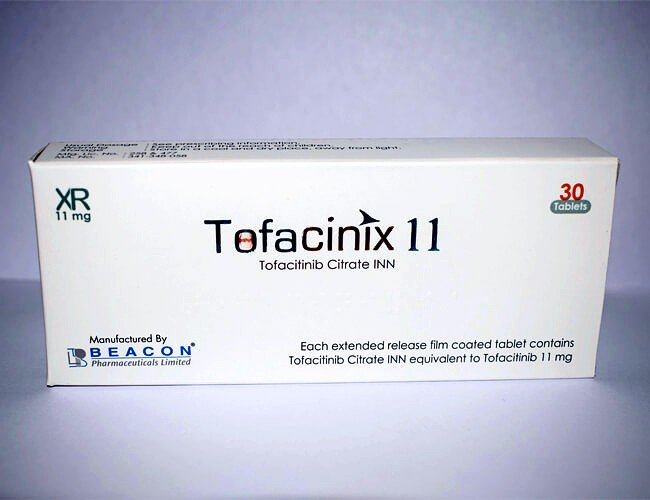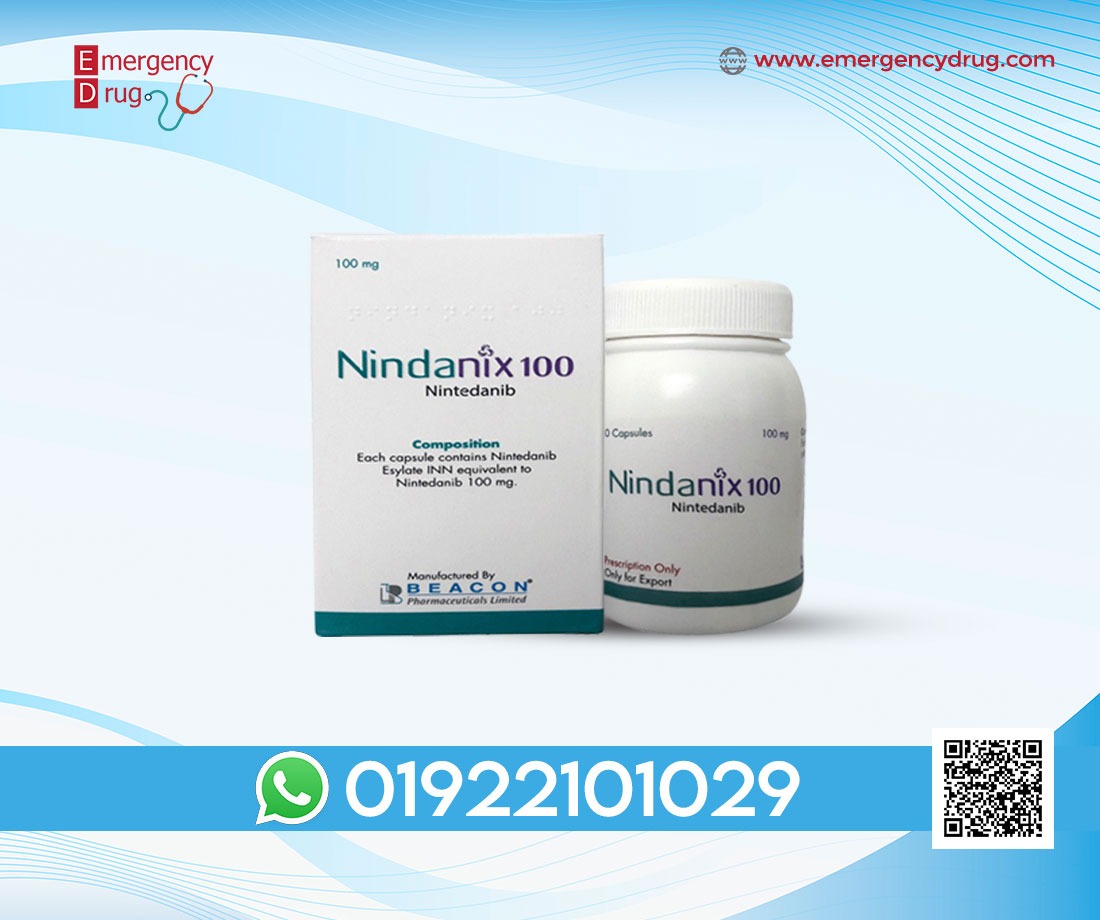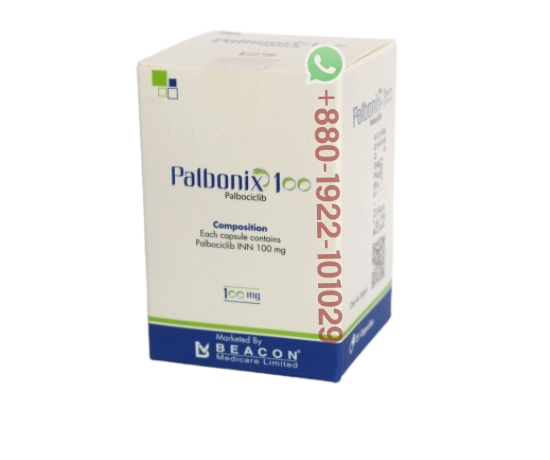Tofacinix (Tofacitinib) 11 MG
Price: $95.00
Tofacitinib indicate for the treatment of adult patients with moderately to severely active rheumatoid arthritis, psoriatic arthritis, ulcerative colitis (UC) who have had an inadequate response or intolerance to methotrexate. It use as monotherapy or in mixture with methotrexate or other nonbiologic disease-modifying antirheumatic drugs (DMARDs).
Description
Tofacinix (Tofacitinib) is a Janus Kinase (JAK) inhibitor JAKs is an intracellular enzyme that transmits signals arising from cytokine or growth factor-receptor reaction on the cellular membrane to influence cellular processes hematopoiesis and immune cell function. Tofacinix modulates the signaling pathway at the point of JAKs, removing the phosphorylation and activation of STATs.
Dosage And Administration Tofacinix
Administration Instructions: Do not inflate Tofacitinib absolute lymphocyte court <500 cells/mm, an absolute neutrophil count (ANG) <1000 cells/mm² or hemoglobin 9 g/dL.
Recommended Dosage Tofacinix
Rheumatoid Arthritis and Psoriatic Arthritis (in combination with nonbiologic DMARDs):
• Tofacinix (Tofacitinib) 11 mg once daily.
Tofacinix taken with or without food.
• For patients who do not achieve adequate therapeutic benefit by week 8, the induction dose of 10 mg twice daily can extend for an additional 8 weeks (16 weeks total), followed by 11 mg once daily for maintenance. Tofacinix (Tofacitinib) induction therapy should discontinue in any patient who shows no evidence of therapeutic benefit by week 16.
• Recommended dosage in patients with moderate and severe renal impairment or moderate hepatic impairment is half the total daily dose.
Contraindication
Hypersensitivity to the active substance or to any of the excipients.
Warnings And Precautions
Serious Infections Serious and sometimes fatal infections due to bacterial, mycobacterial, invasive fungal, viral, or other opportunistic pathogens have reported in patients receiving Tofacitinib. The most common serious infections reported with Tofacitinio included pneumonia, cellulitis, herpes zoster, urinary tract infection, diverticulitis, and appendicitis.
Among opportunistic infections, tuberculosis and other mycobacterial infections, cryptococcosis, histoplasmosis, esophageal candidiasis, pneumocystosis, multidermatomal herpes zoster, cytomegalovirus infections, BK virus infection, and listeriosis were reported with Tofacitinib.
Some patients have presented with disseminated rather than a localized disease, and agents such as were often taking concomitant immunomodulating methotrexate or corticosteroids.
- with chronic or recurrent infection
- exposed to tuberculosis
- serious or an opportunistic infection.
- resided or traveled in areas of endemic tuberculosis or endemic mycoses: or
- underlying conditions that may predispose them to infection.
Side Effects
The most common adverse reactions are: upper respiratory tract infection, nasopharyngitis, diarrhea, headache, elevated cholesterol levels, increased blood creatine phosphokinase, rash, and herpes zoster.
Specific Population Uses
Pregnancy and Lactation
Pregnancy Category C. There are no adequate and well-controlled studies in pregnant women. Tofacitinib use during pregnancy only if the potential benefit justifies the potential risk to the fetus. It is not known whether this medicine is excreted in human milk. Caution exercised when this product administered to a nursing woman.
Drug Interactions
With medicine: Tofacitinib exposure increase when Tofacitinib is co-administered with potent inhibitors of cytochrome P450 (CYP) 3A4 (e.g., ketoconazole) and CYP2C19 (e.g., fluconazole). Use of Tofacitinib in combination with biologic DMARDs or potent immune suppressants such as azathioprine and cyclosporine not recommend.
With food and others: It’s avoid taking Tofacitinib with grapefruit juice and to avoid grapefruit juice completely during Tofacitinib treatment.
Overdose
There is no specific antidote for overdose with Tofacitinib 11 mg. In case of an overdose, it recommend that the patient monitor for signs and symptoms of adverse reactions.
Pharmaceutical Information Tofacinix
Storage Condition
Store Tofacinix (Tofacitinib) below 25°C. Do not remove desiccant. Dispense in the original container.
Keep it out of the reach and sight of children.
How Supplied
Tofacinix tablet: Each HDPE container of Tofacitinib contains 60 tablets, a silica gel desiccant, and a polyester coil with a child-resistant closure.
Visit our another Medicine products here:
No images in this gallery yet!
طلب اقتباس الآن
[contact-form-7 id='1257' title='Delivery contact']













